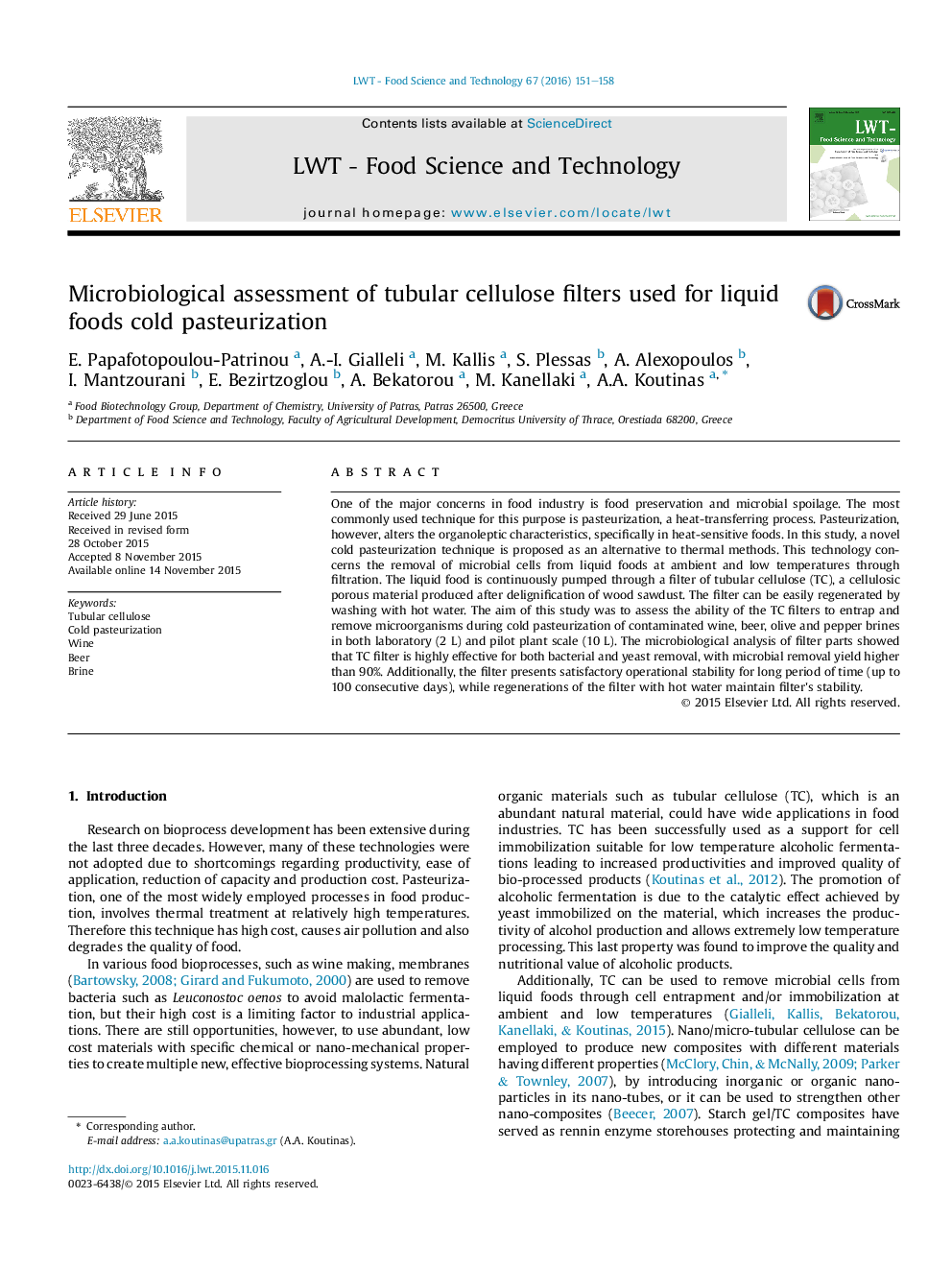| Article ID | Journal | Published Year | Pages | File Type |
|---|---|---|---|---|
| 4563823 | LWT - Food Science and Technology | 2016 | 8 Pages |
•Microbiological assessment of cold pasteurization filter.•Scale up of cold pasteurization process.•Operational stability of tubular cellulose filter.•Kinetics of filter contamination.
One of the major concerns in food industry is food preservation and microbial spoilage. The most commonly used technique for this purpose is pasteurization, a heat-transferring process. Pasteurization, however, alters the organoleptic characteristics, specifically in heat-sensitive foods. In this study, a novel cold pasteurization technique is proposed as an alternative to thermal methods. This technology concerns the removal of microbial cells from liquid foods at ambient and low temperatures through filtration. The liquid food is continuously pumped through a filter of tubular cellulose (TC), a cellulosic porous material produced after delignification of wood sawdust. The filter can be easily regenerated by washing with hot water. The aim of this study was to assess the ability of the TC filters to entrap and remove microorganisms during cold pasteurization of contaminated wine, beer, olive and pepper brines in both laboratory (2 L) and pilot plant scale (10 L). The microbiological analysis of filter parts showed that TC filter is highly effective for both bacterial and yeast removal, with microbial removal yield higher than 90%. Additionally, the filter presents satisfactory operational stability for long period of time (up to 100 consecutive days), while regenerations of the filter with hot water maintain filter's stability.
